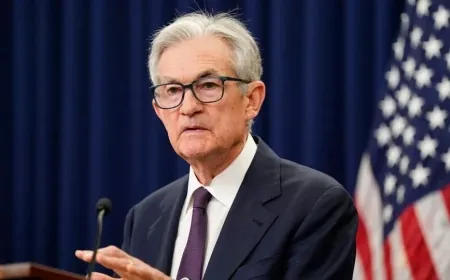Binance’s General Counsel Tackles Major Legal Obstacles in the Crypto Industry
Binance’s General Counsel Eleanor Hughes tackles major challenges, from disputes in Nigeria to strict US monitoring, following a $4.3 billion penalty and CEO change.

Eleanor Hughes, General Counsel for Binance, deals with a range of significant issues, from disputes with Nigerian officials to strict scrutiny by US regulators following a landmark plea agreement. This agreement resulted in a $4.3 billion penalty and the incarceration of co-founder Changpeng “CZ” Zhao due to lapses that allowed criminal activities on the platform.
Describing her role, Hughes called it one of the most fascinating in the legal field, facing new challenges daily.
“We believe that Binance has overcome some really significant challenges in the last six months and we’ve shown ourselves to be a very resilient business despite everything that’s happened,” Hughes stated in an interview.
US Regulatory Supervision
Hughes, who joined Binance in 2021 and now leads a team of 80 lawyers, has seen many changes. Following Zhao’s resignation as CEO as part of the US settlement, Richard Teng took over leadership.
The exchange is now under the watchful eye of the Justice Department and the US Treasury’s Financial Crimes Enforcement Network for several years. Teng mentioned that the appointed monitors, Forensic Risk Alliance and Sullivan & Cromwell, have already begun their oversight duties.
To liaise with the monitors, Binance has formed an internal team led by Sally Molloy, a former deputy chief of the Justice Department’s Fraud Section. Molloy’s experience includes overseeing post-resolution compliance, according to a spokesperson.
Nigerian Dispute
In February, Nigerian authorities detained two Binance employees, including US citizen Tigran Gambaryan, the head of financial crime compliance at Binance. While another employee, Nadeem Anjarwalla, managed to escape, Gambaryan remains in custody in Abuja despite some charges being dropped. US lawmakers have accused Nigeria of holding him hostage, a claim denied by the Nigerian government.
Binance’s issues in Nigeria began before this, as the authorities had previously blocked cryptocurrency channels amid efforts to curb speculation against the naira. Hughes noted that Binance had reached out to the Nigerian Securities and Exchange Commission twice but received no response.
Operational Adjustments
Under Teng's leadership, Binance has made several changes, such as tightening requirements for listing new digital tokens and spinning off its venture arm. However, the company has not yet established a global headquarters or released a fully audited set of accounts.
“It’s obviously very difficult for crypto businesses as a whole to engage with third-party auditors, because a lot of them have taken the decision that they won’t engage with any digital-asset or crypto firms,” Hughes said. “That is causing us a little bit of delay.”
Expansion and Compliance Efforts
Binance employs over 5,000 staff, and customer assets on the platform have grown by $42 billion in 2024 as the crypto market rallied. The company is also making strides in markets where it previously faced regulatory challenges.
In India, Binance registered with the Financial Intelligence Unit, taking a step toward resuming operations. Recently, the FIU imposed a penalty of 188.2 million rupees ($2.2 million) on Binance for non-compliance with anti-money laundering regulations.
In Thailand, the Gulf Binance Co. platform, a joint venture with Gulf Energy Development, began operations this year after receiving the necessary permits. In 2021, the Thai securities regulator had filed a complaint against Binance for operating without a license.
Hughes emphasized Binance’s dedication to resolving past issues and working with regulators even in tough environments.
“We aim to clear those historic issues and collaborate with regulators even in very difficult jurisdictions,” Hughes concluded.
Also Read: CEO Predicts Bitcoin Could Skyrocket 12,000%—Here’s Why

































































